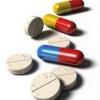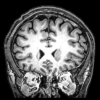There's been alot of intrest in this lately, also because glutamate hypoactivity is implicated in a bunch of disorders.
Some previeus threads about this:
http://www.longecity...ropic-d-serine/
http://www.longecity...dar-activation/
Glutamate is the main neurotransmitter in the brain and regulates pretty much all neurotransmitters and indeed glutaminergic issues are involved in a whole list of mental disorders.
It appears that ADHD, AVPD, OCD, BDD and depression can be caused by glutamate hypoactivity, i made this thread to start a discussion focussing on this with potential treatments and hopefully some succesfull anecdotes.
As for my personal experience sarcosine (a glycine reuptake inhibitor) worked damn well for my OCD:
"Sarcosine therapy for obsessive compulsive disorder: a prospective, open-label study.
Wu PL, Tang HS, Lane HY, Tsai CA, Tsai GE.
Source
Department of Psychiatry, China Medical University Hospital, Taichung, Taipei, Taiwan.
Abstract
BACKGROUND:
Several lines of evidence implicate glutamatergic neurotransmission in the pathophysiology of obsessive compulsive disorder (OCD). Sarcosine is an endogenous antagonist of glycine transporter-1. By blocking glycine uptake, sarcosine may increase the availability of synaptic glycine and enhance N-methyl-d-aspartate (NMDA) subtype glutamatergic neurotransmission. In this 10-week open-label trial, we examined the potential benefit of sarcosine treatment in OCD patients.
METHOD:
Twenty-six outpatients with OCD and baseline Yale-Brown Obsessive Compulsive Scale (YBOCS) scores higher than 16 were enrolled. Drug-naive subjects (group 1, n = 8) and those who had discontinued serotonin reuptake inhibitors for at least 8 weeks at study entry (group 2, n = 6) received sarcosine monotherapy. The other subjects (group 3, n = 12) received sarcosine as adjunctive treatment. A flexible dosage schedule of sarcosine 500 to 2000 mg/d was applied. The primary outcome measures were Y-BOCS and Hamilton Anxiety Inventory, rated at weeks 0, 2, 4, 6, 8, and 10. Results were analyzed by repeated-measures analysis of variance.
RESULTS:
Data of 25 subjects were eligible for analysis. The mean ± SD Y-BOCS scores decreased from 27.6 ± 5.8 to 22.7 ± 8.7, indicating a mean decrease of 19.8% ± 21.7% (P = 0.0035). Eight (32%) subjects were regarded as responders with greater than 35% reduction of Y-BOCS scores. Five of the responders achieved the good response early by week 4. Although not statistically significant, drug-naive (group 1) subjects had more profound and sustained improvement and more responders than the subjects who had received treatment before (groups 2 and 3). Sarcosine was tolerated well; only one subject withdrew owing to transient headache.
CONCLUSION:
Sarcosine treatment can achieve a fast therapeutic effect in some OCD patients, particularly those who are treatment naive. The study supports the glycine transporter-1 as a novel target for developing new OCD treatment. Large-series placebo-controlled, double-blind studies are recommended."
"Neural Plast.
2009;2009:768398. Epub 2010 Feb 18.
High-dose glycine treatment of refractory obsessive-compulsive disorder and body dysmorphic disorder in a 5-year period.
Cleveland WL, DeLaPaz RL, Fawwaz RA, Challop RS.
Source
Department of Medicine, St. Luke's-Roosevelt Hospital Center, Columbia University, New York, NY 10019, USA. WLC1@columbia.edu
Abstract
This paper describes an individual who was diagnosed with obsessive-compulsive disorder (OCD) and body dysmorphic disorder (BDD) at age 17 when education was discontinued. By age 19, he was housebound without social contacts except for parents. Adequate trials of three selectiveserotonin reuptake inhibitors, two with atypical neuroleptics, were ineffective. Major exacerbations following ear infections involving Group A beta-hemolytic streptococcus at ages 19 and 20 led to intravenous immune globulin therapy, which was also ineffective. At age 22, another severe exacerbation followed antibiotic treatment for H. pylori. This led to a hypothesis that postulates deficient signal transduction by the N-methyl-D-aspartate receptor (NMDAR). Treatment with glycine, an NMDAR coagonist, over 5 years led to robust reduction of OCD/BDD signs and symptoms except for partial relapses during treatment cessation. Education and social life were resumed and evidence suggests improved cognition. Our findings motivate further study of glycine treatment of OCD and BDD."
"J Clin Psychiatry.
2009 Nov;70(11):1530-5. Epub 2009 Jun 30.
Double-blind study of dextroamphetamine versus caffeine augmentation for treatment-resistant obsessive-compulsive disorder.
Koran LM, Aboujaoude E, Gamel NN.
Source
OCD Clinic, Stanford, CA 94305, USA. lkoran@stanford.edu
Abstract
INTRODUCTION:
Two small, double-blind, placebo-controlled, single-dose, crossover studies found dextroamphetamine (d-amphetamine) 30 mg clearly superior to placebo in relieving symptoms of obsessive-compulsive disorder (OCD). We conducted a 5-week, double-blind, caffeine-controlled study to test the hypothesis that d-amphetamine, added after an adequate selective serotonin reuptake inhibitor (SSRI) or serotonin-norepinephrine reuptake inhibitor (SNRI) trial, would be more effective than caffeine in reducing residual OCD symptoms of moderate or greater severity.
METHOD:
Between August 2006 and February 2008, we enrolled adults with DSM-IV OCD and a Yale-Brown Obsessive Compulsive Scale (Y-BOCS) score of >or= 20 after >or= 12 weeks of adequate treatment with an SSRI or SNRI. Subjects were randomly assigned to double-blind d-amphetamine 30 mg/d or caffeine 300 mg/d added to their SSRI/SNRI and other medications. Responders (first week mean Y-BOCS score decrease of >or= 20%) entered the study's 4-week double-blind extension phase.
RESULTS:
We enrolled 24 subjects, 11 women and 13 men, with a mean (SD) age of 40 (13.2) years and mean baseline Y-BOCS scores of 26.5 (4.1) for the d-amphetamine group (n = 12) and 29.1 (4.0) for the caffeine group (n = 12). At the end of week 1, 6 of 12 d-amphetamine subjects (50%) and 7 of 12 caffeine subjects (58%) were responders. At week 5, the responders' mean Y-BOCS score decreases were, for the d-amphetamine group (last observation carried forward), 48% (range, 20%-80%); and, for the caffeine group, 55% (range, 27%-89%). Obsessive-compulsive disorder and depression improvement were independent. The double-blind remained intact. No subject discontinued the study due to side effects.
CONCLUSIONS:
Larger, double-blind, placebo-controlled trials of both d-amphetamine and caffeine augmentation are needed in OCD subjects inadequately responsive to adequate doses of an SSRI or SNRI.
TRIAL REGISTRATION:
"
I also included that study on amphetamine, it releases glutamate and d serine and in my case completely abolished my ocd in contrast to DRI's.



















































